I didn’t realize Black folks and other minorities and people are color are typically the only people who are adamant about washing off their chicken until I was an adult. I noticed it because every time the “chicken washing debate” would circulate on social media whites/Caucasians would always appear astounded and shocked there was even a debate about the topic. Is washing chicken bad?
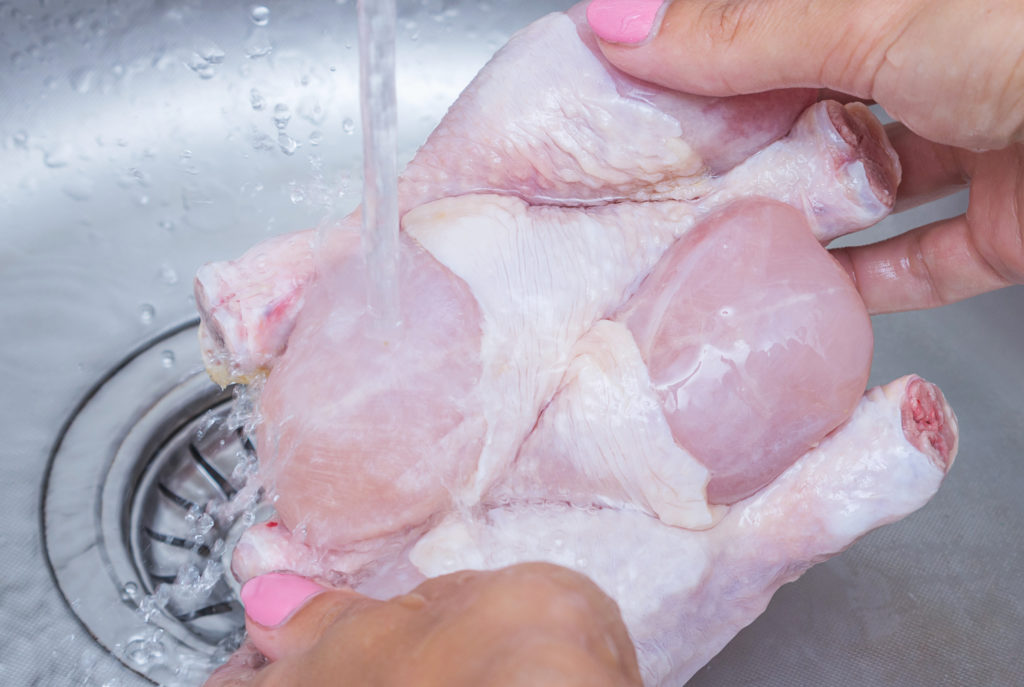
Cultural History
Like most Blacks, I grew up washing chicken. Most people wash their chicken because they do so habitually. It’s done out of habit. For years, older generations have washed their chicken, so the custom was simply passed down.
Let’s examine the history of food preparation for African Americans. During slavery, enslaved people often had to feed their families with less desirable ingredients that were passed on from their slave masters. Slave masters would often take the more desirable areas of animal protein for their meat consumption. The remaining scraps were then used as the primary source of meals for Blacks.
Examples include pig intestines to make chitterlings, butts of oxen used to make oxtails, pig feet, chicken and turkey necks, hog jowls, and more. To be direct, these areas of the animal smell awful. It would make sense why Blacks would want to give all of this food a thorough cleaning.
Black people are also used to spending large amounts of time washing collard greens, mustard greens, black-eyed peas, beans, etc. These items definitely require thorough washing because they are grown in soil and the ground. If you skip washing your greens you may end up with bugs and dirt in your pot liquor broth. We have all heard the stories, and many of us have made the mistake and have experienced this first hand.
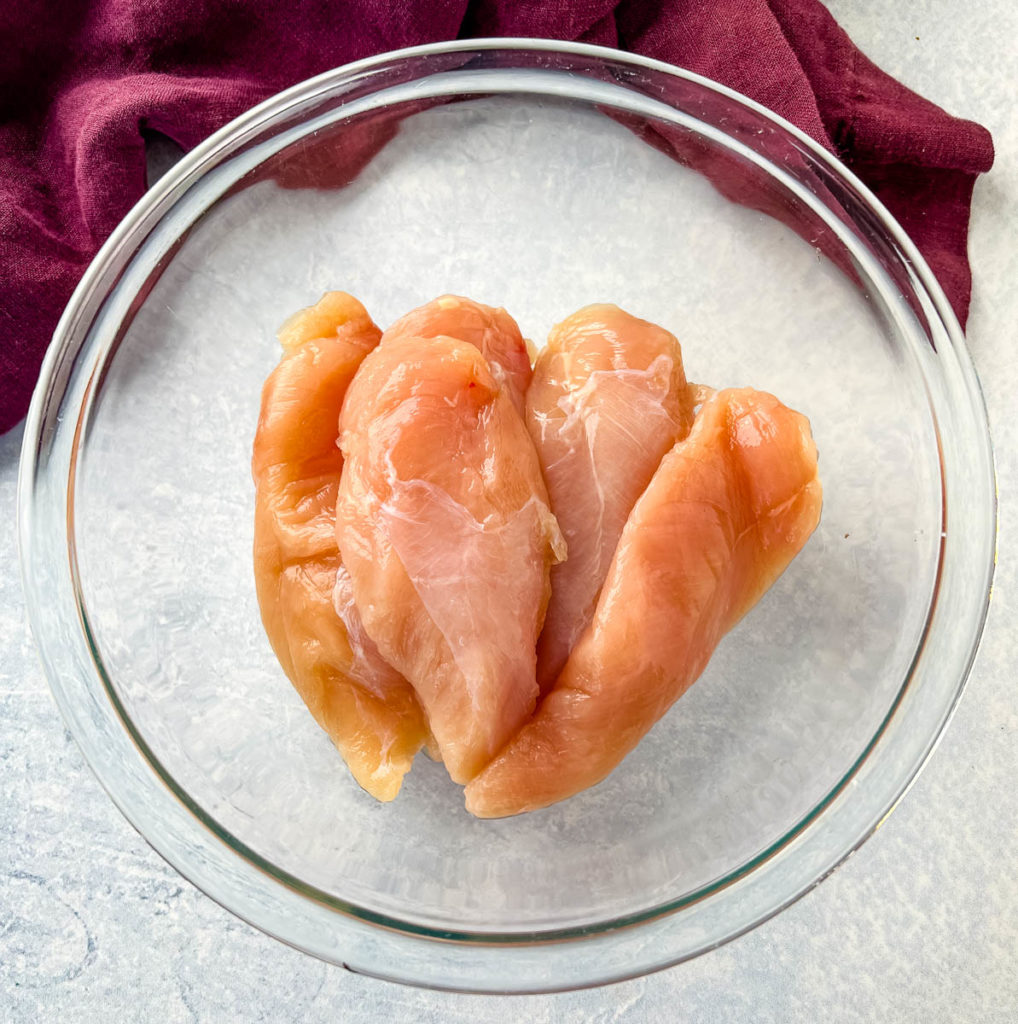
Skeptism
Another reason people wash their chicken is because they are skeptical of where it’s been, who handled the meat, and how it was handled. Most of us have seen footage from inside “kill plants,” farms, and manufacturing facilities. It’s often not a pretty sight. People want to wash their chicken in an attempt to remove any surface dirt and grit.
CDC Guidance
The CDC has direct guidance on how to prevent food poisoning as it pertains to cleaning chicken. On their website (in bold print) it says, “Do not wash raw chicken. During washing, chicken juices can spread in the kitchen and contaminate other foods, utensils, and countertops.”
Here are a few more tips from their guidance:
- Place chicken in a disposable bag before putting it in your shopping cart or refrigerator to keep raw juices from getting onto other foods.
- Wash hands with warm, soapy water for 20 seconds before and after handling chicken.
- Use a separate cutting board for raw chicken.
- Never place cooked food or fresh produce on a plate, cutting board, or other surface that previously held raw chicken.
- Wash cutting boards, utensils, dishes, and countertops with hot soapy water after preparing chicken and before you prepare the next item.
- Use a food thermometer to make sure chicken is cooked to a safe internal temperature of 165°F.
- If cooking a microwaveable meal that includes frozen raw chicken, handle it as you would fresh raw chicken. Follow cooking directions carefully to prevent food poisoning.
- If you think the chicken you are served at a restaurant or anywhere else is not fully cooked, send it back for more cooking.
- Refrigerate or freeze leftover chicken within 2 hours (or within 1 hour if the food is exposed to temperatures above 90°F, like a hot car or summer picnic).
The CDC provided this guidance to prevent Salmonella contamination.
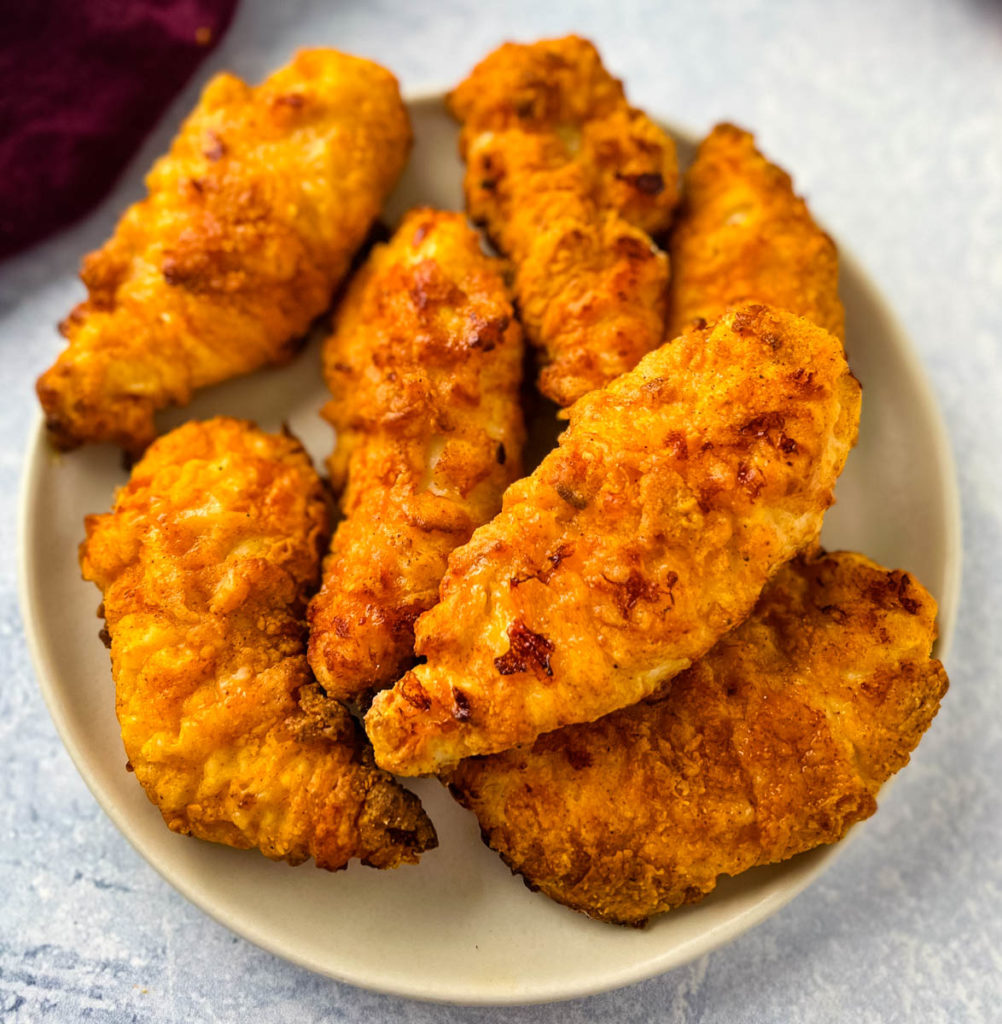
Salmonella Contamination
According to the CDC, they estimate that Salmonella causes more foodborne illnesses than any other bacteria. Chicken is a major source of these illnesses. In fact, about 1 in every 25 packages of chicken at the grocery store are contaminated with Salmonella.
You can get sick from contaminated chicken if it’s not cooked thoroughly or if its juices leak in the refrigerator or get on kitchen surfaces and then get on something you eat raw, such as salad or vegetables.
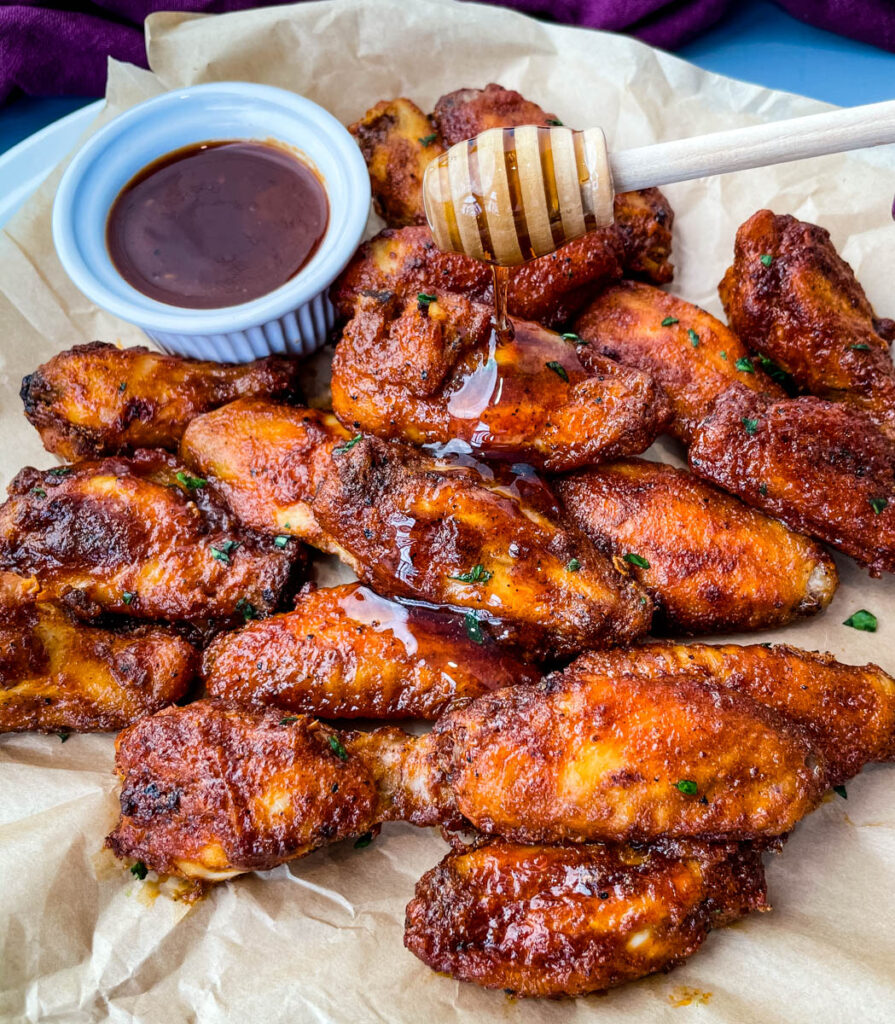
How Do Black People Justify Washing Chicken?
Many people feel they need to wash their poultry to remove fat, feathers, and yellow surfaces of the bird. They also contend they will simply bleach and clean the surfaces when finished.
Many people also like to coat the chicken in lemon juice and/or vinegar. I’ve also seen stories of people washing their meat with soap.
Recommendation
The decision to wash your chicken is one of personal preference. I personally do not because I believe science supports that heat and safe internal temperatures will kill off anything I don’t want in my meat. For me, it isn’t worth the risk of contaminating my sinks and utensils.
As always, do what works best for you!
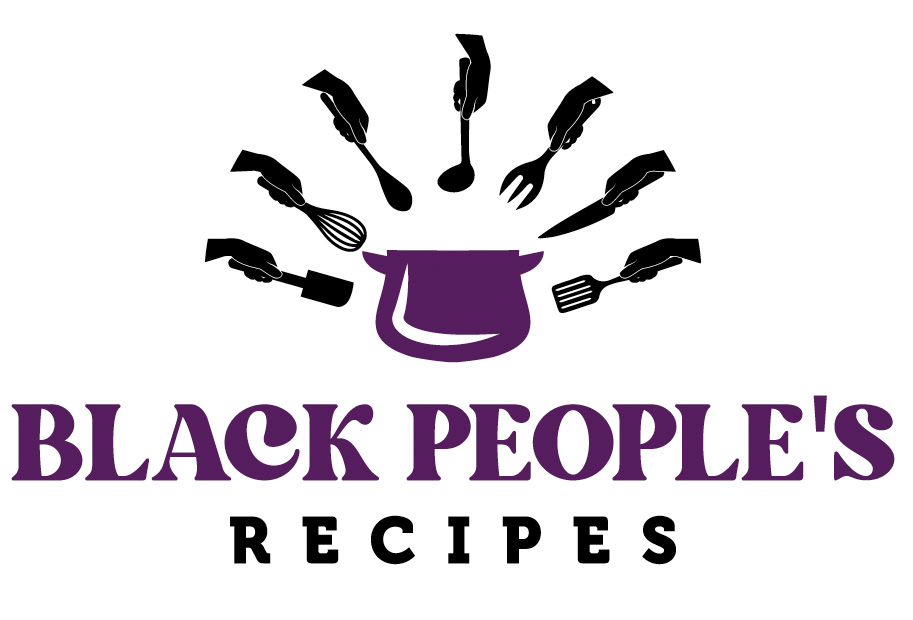
Dee
Monday 21st of April 2025
I get what that the CDC advises and the science behind it but they aren't right about all things. The simple fact that it's been handled and processed by humans in a facility, I would never NOT wash my chicken. As you stated the killing facilities, the handling and shipping, or it could of been dropped on the floor, or whatever, I just prefer to wash my chicken with lemons, vinegar and salt. ALWAYS. And I just simply bleach the sink and countertops afterwards. If I buy it at the store and it can be washed, I'm washing it, including beef, pork, rice and ALL fruits and veggies.
Zella Miller Young
Monday 14th of April 2025
I have always washed and will continue to wash my chicken. Chicken has fat, slime and feathers on it. I don't eat that. As for contamination, Clorox takes care of that wonderfully. But to each his own.
Carly
Tuesday 7th of November 2023
I grew up on a wheat farm in Oklahoma where we raised all of our beef, chickens, and produce for consumption at our table. My uncle would share pork products when he butchered one of his hogs. I just ran across these recipes today and haven't gotten a lick of work done reading all of them. So many I had forgotten about or couldn't remember how to prepare after all these years. I could smell the biscuits baking, the black-eyed peas simmering away with a meaty ham hock,and so many other comfort foods I grew up with. Oklahoma may not be considered Deep South but my family roots are from Texas and Missouri. And I now live in Florida...go figure! Now back to the chicken washing debacle! My mother always washed raw chicken because we butchered them in our yard and would "defrock" them after dunking in a pot of boiled water. Then we would take them inside the house to remove the pin feathers by singeing over a gas flame which would require another washing. After gutting and cutting up the chicken into pieces, we would wash again and pat dry with a small clean towel or in later years, a paper towel. We would lay them out to dry for a few minutes before we whisked them into plastic bags and popped them into the freezer. This sounds like a long ordeal exposing the dead chicken to all kinds of air borne germs but trust me, it was only a few minutes from chopping block to boiling water bath into the freezer. Generations of cooks before me knew how to handle raw meat to eliminate illness. Once we were through, the towels and/or paper towels went into the burn barrel on our property along with all the disposable chicken parts. I am 75 years old and I have never been ill after eating my chicken, my mother's or any of my other friends and relatives. So it can definitely be done! And by the way, once we were through cutting up those raw chickens, we prepared a hot bleach water bath for our counter top and utensils. No germs escaped our work surfaces! And we never used a thermometer to check inside meat temperature. They hadn't been invented yet! Thanks for listening and enjoy your Southern cooking experience. A word to the wise: Common sense and practicing cleanliness when preparing food in your own kitchen will almost always ensure good healthy eating. Cannot vouch for your family and friends...or your favorite restaurant!!!
Mrmcsistrfistr
Saturday 14th of October 2023
I’m not black and I don’t see a point why you need to wash chicken with dawn dishsoap before cooking? Doesn’t frying oil and water not mix? I feel like popeyes would burn down if they washed chicken with dawn dishsoap
Jen
Tuesday 22nd of October 2024
@Mrmcsistrfistr, nobody is washing their chicken with soap. That's why the use of the word washing is misleading. They are simply rinsing their chicken with water or they might use citrus and vinegar which as the article States is more like a brine than a wash
Debra
Tuesday 3rd of October 2023
Yes, I found the history. Interesting also. But I’m not black and my family has always as far back as I can remember great great grandma always wash chicken parts basically any meat. And I know many other families in cultures that do. So it’s a sanitary thing ,not a black thing and love your recipe.